The emergence of Johor Darul Ta’zim FC as the contemporary dominant force in Malaysian Football owes itself to a managerial and commercial strategy that has broken away from the Malaysian mould and modelled itself more closely on the typical organisational structure of European megaclubs.
The club originally known as PKENJ FC from its birth in 1972 was a fringe club with marginal success and frequent league changes. In 1996 the public Johor Corporation took over the club, rebranding it as Johor FC and seeing quick progression to the Malaysian Super League, where they performed modestly before suffering relegation and yo-yoing between leagues. How did this mediocre outfit come to win 4 consecutive league titles and be the first Malaysian team to win the AFC Cup? This success story begins with the involvement of HRH Major General Tunku Ismail Ibni Sultan Ibrahim, the current Crown Prince of Johor (Johor the state. The capital city and home of the Football club is Johor Bahru).
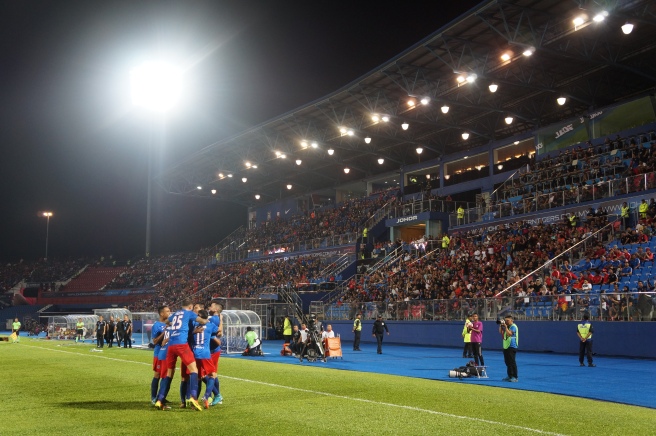
HRH Tunku Ismail Sultan Ibrahim became the president of the Johor Football Association in 2012 and immediately made comprehensive changes to the structure of Football played in the state. This included the controversial decision to disband many smaller clubs and bring those remaining under the same umbrella company. All clubs were renamed Johor Darul Ta’zim FC (matching the name of the state), with Johor FA, a team previously playing in the Malaysian Premier League (the second tier), effectively becoming the Johor Darul Ta’zim II team. Sponsorship deals, commercial activities, club administration and asset management were all aligned between the previous different clubs and facilities were shared between the professional and youth teams. In effect, the Johor Crown Prince took over full ownership, management and responsibility of all Johorean Football clubs and consolidated them into one vertically integrated organisation.
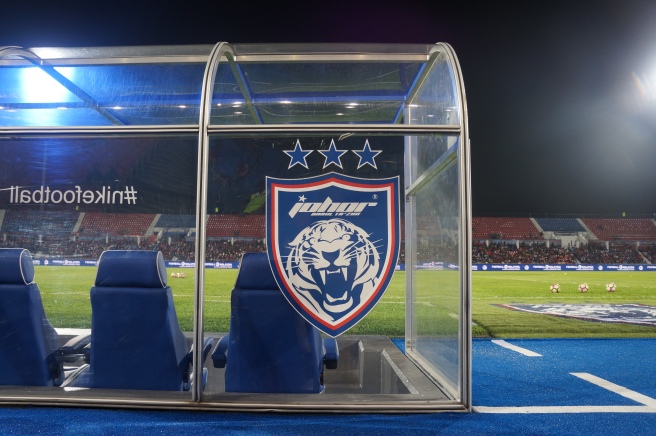
Since HRH Tunku Ismail Sultan Ibrahim’s ascension to the position of Johor FA president in 2012 and subsequent JDT director, JDT has won 4 consecutive Malaysian Super League titles, 3 cups and the coveted AFC Cup in 2015, the first Malaysian club to do so. The route to this rapid sporting success lies not in the vertical integration of Johorean Football teams, but in the move away from financial dependence on the Johorean government and evolution of the club’s commercial strategy to diversify revenue streams with a goal of financial sustainability. This is where JDT stands out from the crowd.

Whilst continuing to strive toward profitable Football-related activities, JDT has ventured into non-Football related markets, now offering auto-insurance, SIM cards, a smartphone, energy and sports drinks whilst also manufacturing the usual array of club merchandise and pushing for increased sales. Without regional-governmental backing that other Malaysian Football clubs rely on, the club is developing alternative revenue streams in order to A) increase income and B) reduce financial dependence on ticket sales and replica-shirt sales, something frequently counterfeited in a country with relaxed attitudes to fake branded clothing. If successful, both of these objectives result in increased financial security, which in turn helps develop facilities, attract talented staff and sign expensive high-calibre players, all of which ultimately translate into superior Football.
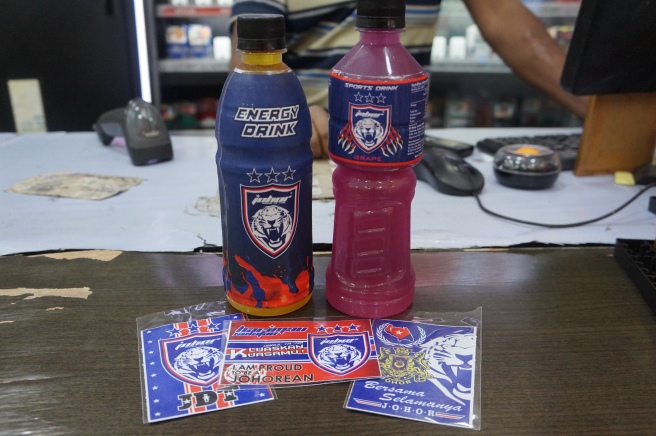
This capitalist approach to club management differs greatly from the traditional Malaysian model in which each Malaysian state operates a Football team to represent them in the medium of sport. Remember that it was the state-run Johor Corporation that bought Johor FC back in 1996. This relationship between states and Football clubs is the status-quo in Malaysia, but JDT’s move to become a financially self-sufficient business is a landmark in Malaysian Football. The club is alone in being able to manage its finances, commercial activities and strategy without any top-down instruction or direction, the end result being managerial efficiency and simplicity and complete investment control.

You should recognise JDT’s strategy as something frankly far more European. This is very much the intention of the club. Club employees assure us that internal expenditures and budgeting are highly scrutinised to degrees uncommon in South East Asia, and a look around club facilities are reminiscent of the leading British club in the arena of franchising. Old Trafford was the inspiration when it came to the player changing rooms and facilities. And the club has outsourced certain elements of player coaching to heavyweights BVB Borussia Dortmund and Valencia CF (BVB were invited to play a friendly at the Stadium Tan Sri Dato Hj Hassan).
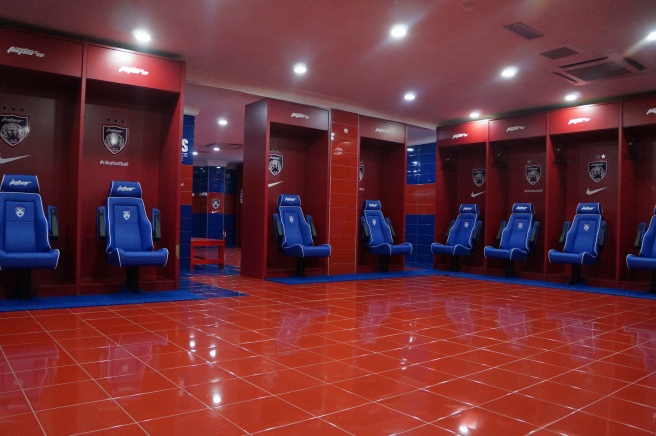
We acknowledge that a lot of nostalgists for Football’s yesteryears with ticket, pie and pint for £1 will read of JDT’s change of management and commercial strategy in distaste, as will Marxists and anti-capitalists, but adopting foreign practice has contributed greatly to JDT’s success, both domestically and continentally. And at the end of the day, we are all sports enthusiasts. Should we not admire JDT as the Malaysian club that took the risk to get ahead? You are in your right to be principled about the over-commercialisation of modern Football, but don’t take Johor Darul Ta’zim FC’s success away from them.
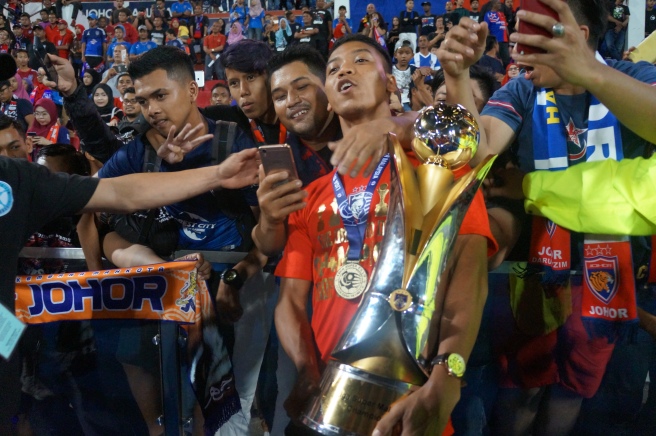
This does however beg the question; why? Why did HRH Major General Tunku Ismail Ibni Sultan Ibrahim risk his own reputation and credibility to become president of the regional FA and director of a Football club? Well, we should look at the club vision statement;
“to be the destination club, where individuals are developed through the strength of the Johor culture to deliver and celebrate exceptional performance”.
Within this predictably investor-friendly vision statement, we must focus on one element; “through the strength of the Johor culture”. Inside Malaysia, Johor is one of the states whose citizens identify more strongly with their region than their nation. Across the state, public amenities, shopfronts, bus stations, hospitals and infrastructure are often coloured blue and red, reflecting the state flag. Tunku Ismail Sultan Ibrahim had the insight to brand the club as “the club of the Johorean people”, with the new nickname “Southern Tigers” referring to the Tigers of the Royal Johor Coat of Arms. Branding the club as the vehicle for Johorean pride not only helps engage usually fickle Malaysian supporters whose interest could otherwise be arbitrary, but also facilitates the franchising of the JDT brand into other business ventures. Johoreans now understand (or believe) that when they buy JDT branded smartphones or car insurance, they are able to further express their Johorean identity. We can speculate about a man’s motivations until the cows come home, but as Crown Prince of Johor, recognising the potential of Malaysia’s favourite sport and importing foreign know-how to develop a strong outfit to serve as an apex for Johorean pride and identity is a narrative that makes sense.
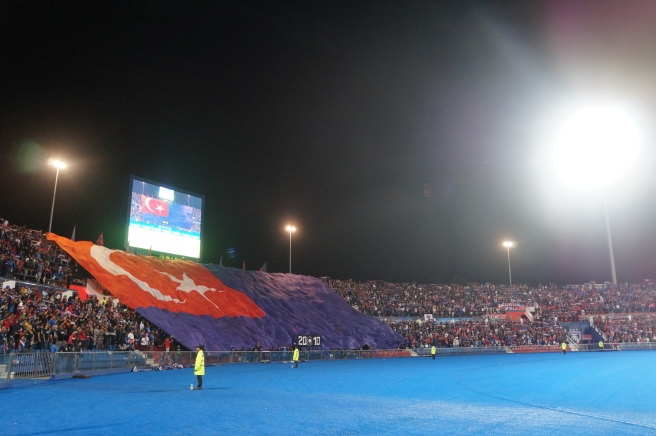
This “Club of the Johorean People” identity may be tough to manage as the club grows and inevitably garners increasingly diverse fans (the club is currently building a 40K capacity stadium closer to the Singapore border- allowing it to draw in support from outside of Johor), but in the long run that branding may become less relevant. The only question remaining is why no Malaysian Football club has adopted this model before now. In a country that has embraced free-markets for all of its (young) history, why did nobody bother to establish a club free of central state management and harness the large increasingly wealthy population to build a stronger Football outfit? The secrets behind JDT’s success will leak and other Malaysian clubs will slowly follow suit, but the club’s domestic hegemony looks secure in the short and medium term.
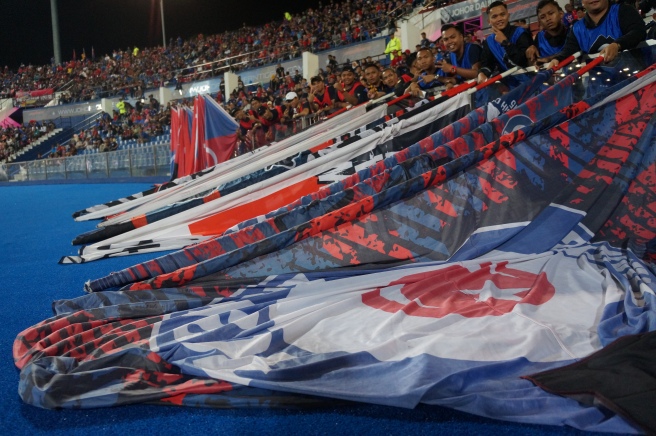
Perhaps the strength of the Johorean identity is the ultimate reason why JDT has been able to successfully franchise its brand into non-Football related industries in the short term; could the clubs of less nationalistic regions be able to parlay regional pride into revenue and attractive Football? Answers on an Aufkleber please.
fbtg

7 thoughts on “New Dog, Old Tricks | Johor Darul Ta’zim FC”